Tesla Demands Return to Obama Fueling Restrictions, Reasons Obvious
Tesla is demanding the reinstatement of a 2016 Obama regulation that more than doubles penalties for manufacturers who fail to adhere to fuel efficiency requirements. Gee, I wonder why it would do such a thing.
While focusing on the environment is an admirable endeavor, much of the discussion surrounding environmentalism on the corporate level really skirts around the periphery of Scamville. Elon Musk is no fool and understands that the more stringent regulations are enacted against his competitors, the more desperate they will be to buy up Tesla’s mountain of carbon credits. With a little help from the government, electric-vehicle companies can effectively bankrupt their more-traditional rivals while earning a nice payday for themselves. In fact, Tesla has only managed to become a profitable company because of this practice.
Another One: Geely Announces Zeekr EV Brand
Geely Auto Group has announced the formation of an electric technology firm and automotive brand called Zeekr Company Limited. With the Chinese group already holding numerous mobility-focused brands with a penchant for electrification, it’s a bit curious to see it launching another one. But Geely has indicated that Zeekr will be aimed at the premium EV market using a similar business model as Lynk & Co.
That likely means selling vehicles as a service, rather than a product owned by the driver — something we’ve been incredibly wary of since the industry starting mulling over things like subscription services and online sales. Owned jointly owned by Geely Automobile Holdings and Zhejiang Geely Holding Group, the plan is to start launching products in China before the end of 2021. It’s quite the swift turnaround, leading us to believe there will be some platform sharing with other Geely-owned automotive brands. New product is said to be introduced every twelve months over the next five years.
Jaguar Is Going to Try and Sell the I-Pace in India
Jaguar Land Rover unveiled its all-electric SUV to the Indian market this week, proving that it’s dead serious about expanding the I-Pace’s customer base. While parent company Tata Motors undoubtedly has a fondness for its home region, we cannot help but wonder if its a market worthy of pursuit considering the model’s starting price.
The manufacturer has the (90-kWh) I-Pace stickered at 105.91 lakh rupees, which translates to about $147,000 USD. Considering the unique way India writes out denominations and often transitions between crore and lakh as a way to avoid listing high-value items in the millions of rupees, we were initially convinced we’d messed up the conversion. The sum would not only eclipse the $70,000 MSRP Jaguar has affixed to the I-Pace in the United States, it makes it highly uncompetitive against the luxury EVs already on a market that’s not known for its wealthy consumer base. How could this be JLR and Tata’s preferred strategy?
SEAT Positioned to Head Development on VW Group's Littlest EVs
Despite Volkswagen having snatched away MEB development duties planned for SEAT, it’s apparently happy to give the Spanish brand an opportunity to head projects for the MEB-Lite platform for the majority of VW Group. The resulting vehicles should all be compact battery electric or hybrid cars, and potentially very low in fat, sugar, or carbs based on the agreed-upon naming conventions.
Better still, Volkswagen has claimed these vehicles should begin arriving by 2025 yielding MSRPs below €20,000 — which is roughly $24,000 USD. We’re not willing to rule anything out for our market, especially given the segment is relatively new. But North America isn’t prone to receiving exceptionally small European imports, so don’t hold you’re breath if you happen to be living within the region and eager to buy an EV smaller than the I.D.4.
GM Considers Sharing Chevy Bolt Between Dealers
The latest from Detroit has General Motors considering tweaking its delivery strategy for electric vehicles. While this appears to tangentially fall into the industry trend of trying to shove EVs into an online sales model, GM’s plan is distinctive and would introduce centralized inventory lots for the 2022 Chevrolet Bolt ( hatchback and EUV) before Christmas. But we can already see the dual-sized nature of the plan that will be used to promote and condemn it, should things move forward.
General Motors could be seen as throwing dealerships a bone by finding a way for those located in areas where EV buyers are less prevalent to provide their customers with electrified options. This saves them from having to prep their lots for charging and making space for vehicles people might not bother buying until the technology has further matured. However, with industry giants (including GM) vowing to continue making more of their lineup battery-powered, dealers might also view this as a coy way for the manufacturer to obtain more control over retail operations. Other manufacturers have already explained that they want to prioritize online sales of electric automobiles, with the end result likely mimicking the Tesla sales model … something that doesn’t include traditional dealerships.
The Week of Driving Autonomously in an Xpeng
XPeng, a Chinese maker of EVs, sent a fleet of XPeng P7s on a 2,284-mile, weeklong autonomous driving jaunt across six provinces, the longest by any mass-produced vehicles in the country.
Oil 2021 Outlook – Oversupply and Lower Demand
Oil 2021, an analysis by the International Energy Agency (IEA), explains why the pandemic caused the collapse in demand for oil in 2020, and why it may never return to ‘normal’.
2021 Hyundai EVs Get Fast Charging Free
Hyundai’s 2021 Kona Electric and Ioniq Electric now include 250 kWh of complimentary fast charging through Electrify America, with more than 2,400 ultra-fast chargers across the U.S. According to Electrify America, 96 percent of the population lives within a 120-mile radius of one of their chargers.
Rivian Plans Showroom for Trendiest Part of Brooklyn
Electric-truck startup Rivian has signed the lease for its first showroom in New York City and has selected one of the trendiest spots in Brooklyn. Once known for its high crime rate, Williamsburg has undergone three decades of gentrification and is now awash with luxury retailers normally reserved for the swankiest parts of Manhattan. In the 1990s, the neighborhood was still rough around the edges but had started to become ground zero for the East Coast hipsters, starving artists, and young musicians who gradually influenced its trajectory. The next three decades saw Williamsburg moving steadily upward with rental prices keeping pace. Riverside warehouses were replaced with high-rise hotels, the average household income closed on six figures, and dog parks are situated conveniently near designer ice cream shops.
It’s now the perfect place for a showroom dedicated entirely to electric vehicles, especially one that seems like a merger between Tesla Motors and REI.
BMW IDriving Machines Tout Connectivity
BMW has announced that the upcoming iX and i4 electric vehicles will be equipped with iDrive 8, their latest interactive buddy to keep you busy while you motor about.
Hindenburg Research Report Lambasts Lordstown Motors, Fabricated Orders
Hindenburg Research, the firm that outed Nikola for overselling its technology in last year’s scathing report, has selected a new target. The company in its crosshairs this time around is Lordstown Motors. While the investment research firm stopped short of saying the Ohio-based manufacturer committed fraud, it came extremely close. On Friday, Hindenburg alleged that Lordstown is stringing investors along, will be unable to adhere to its existing production targets, and fabricated sales to make the business appear more appetizing.
“Lordstown is an electric vehicle [special purpose acquisition company] with no revenue and no sellable product, which we believe has misled investors on both its demand and production capabilities,” reads the report. “The company has consistently pointed to its book of 100,000 pre-orders as proof of deep demand for its proposed EV truck. Our conversations with former employees, business partners and an extensive document review show that the company’s orders are largely fictitious and used as a prop to raise capital and confer legitimacy.”
Lawmakers Introduce Bill Offering USPS More Money for EVs
Despite the United States Postal Service (USPS) having recently finalized its plan to award Oshkosh Defense a $482 million contract to replace its ramshackle fleet with sparkly new Next Generation Delivery Vehicles (NGDV), Postmaster General Louis DeJoy said it could only afford to make 10 percent of the fleet electric. The USPS would allegedly need another 3 or 4 billion dollars in government assistance to make BEVs happen in meaningful numbers and some lawmakers seem happy to oblige.
A bill sponsored by House Representative Jared Huffman (a California Democrat), introduced on Monday, seeks to allocate $6 billion to increase the number of EVs used by the USPS — with the stipulation that at least 75 percent of the motor pool be zero-emission vehicles. The original plan estimated expenditures of roughly $6.3 billion over the duration of the 10-year program to modernize the United States’ postal fleet. But the service ultimately decided to go with Oshkosh’s internal combustion model, rather than the electric prototypes offered by other manufacturers.
Another One: FedEx Vows to Become Carbon Neutral by 2040
FedEx had kneeled before mankind, vowing to become a carbon-neutral business by 2040. That’s roughly eight years longer than it’ll probably take most of the population to forget that the promise was ever made. But this is the way of the world and we wager it won’t be long before it’s just easier to list the companies and governments that have not made informal, often empty commitments about the environment.
But, before we throw FedEx into the camp of blatant placation, let’s see what it actually has planned.
GM Launching Digital Retail Tool for EV Sales
General Motors intends to launch a digital retail tool aimed at facilitating electric vehicle sales. However, this does not appear to represent a total shift away from the traditional dealer model — even if it technically furthers that cause.
While EVs have grown in popularity, they’re still a niche segment and perhaps not suited to the needs of all customers. That makes it risky to stock your showroom with them, depending on the geography. So we’ve seen multiple manufacturers embrace online sales and the flexibility that offers the manufacturer as a way to get around this. Some companies, like Tesla, even prioritize direct sales models above the alternative — and we’re seeing brands like Volvo beginning to do the same. GM said it would be using Tekion (founded by Tesla and Oracle bigwig Jay Vijayan) to help it sell EVs over the internet.
Welcome to Electric Avenue — More Chargers on the Way
The Electric Highway Coalition, a consortium of six utility companies, will provide a network of 20-30 minute DC fast chargers for EV drivers, as reported by Electrek. Each of the utilities will be responsible for providing EV charging within their service areas, with most sites located along major highways for easy access and adjacency to other amenities.
Jaguar Land Rover Deathwatch: Hitting Reset on EV Development
Jaguar Land Rover has canceled several planned vehicles and opted to reassess its Modular Longitudinal Architecture (MLA) after the company started fretting about the probability of unmet emissions requirements. Chief Financial Officer Adrian Mardell addressed investors on Friday to explain that all subsequent development of the platform would be postponed indefinitely. Ironic, considering MLA was supposed to be flexible enough to facilitate electrification and putting a lid on it means canceling the planned all-electric Jaguar XJ sedan and at least one unnamed Land Rover.
Rather than its intended purpose of underpinning all JLR products by 2025, the MLA platform is now said to be used exclusively on Land Rover’s larger SUVs. Meanwhile, the manufacturer has decided to prioritize its battery-focused Electrified Modular Architecture (EMA) as it tries to place a greater emphasis on electrification moving forward. Sadly, that means the $1.4 billion it spent in service of advancing MLA and finding a new partner that can help make Jaguar all-electric by 2025.
Nikola Embarrassed After Internal Review, Now Downsizing
The outside firm Nikola hired to conduct the internal investigation looking into the validity of claims made by ousted founder Trevor Milton has reached a conclusion. Milton does appear to have been fabricating the status of the company’s technology and how far along its prototypes were. But Nikola wasn’t helping and ended up being implicated in a few falsehoods of its own.
Some wealthy individual lying to a sea of people for the sake of making money is hardly news, however. The entire world runs on politicians and business people going back on promises made months earlier and clarifying statements that never seem to illuminate anything. What makes Milton’s offense so bad is that he seems to have used the power of lying to mislead investors who might have otherwise made money. Nikola shares never truly recovered from the exposé published by Hindenburg Research as part of its plan to short the company, and those who never bothered to question the legitimacy of its technical claims before investing are suddenly very interested in knowing everything about the business.
Woulda, Coulda, Shoulda: Ford CEO Calls for U.S. Battery Production
On Wednesday, Ford CEO Jim Farley told attendees of the Wolfe Research Auto Conference that the United States needs to start building batteries for the industry’s planned deluge of electric vehicles now that semiconductor shortages have revealed the dangers of needing to source essential components from the other side of the planet.
Farley is likely correct in stating that America really should be able to supply itself, and not just in regard to semiconductor chips. Pandemic-related lockdowns crippled countless industries by upsetting the balance of supply lines. Halfway through 2020, farmers were dumping millions of gallons of milk per day and plowing up fields of eatable vegetables as restaurants were shutdown; factories were idled as part shortages became commonplace; cleaning supplies and disinfectants became impossible to find.
But it’s hard to translate that into sympathy for Ford because, while all of the above was happening, the automaker’s leadership was saying that there was no good reason to manufacture its own batteries.
Hyundai Reportedly Using SK Batteries for Ioniq 5
We recently published an article about Hyundai’s upcoming Ioniq 5 EV and closed by suggesting it might be desirable that North America wouldn’t be the first to get them. If you read our post about the automaker’s current situation with supplier LG Chem, you may have already been able to guess why we feel this way. The manufacturer is looking down the barrel of an expensive recall relating to battery fires and EVs have a propensity to experience botched product launches. Considering the newness of the technology, some of that is to be expected. But that may not be the whole story.
News has begun circulating that Hyundai and Kia would begin sourcing more products from China’s Contemporary Amperex Technology (CATL) and Korea’s SK Innovation. We’ve likewise seen reports coming out of Korea stating that the automaker had decided to install SK batteries in the Ioniq 5, presumably because the units it has already sold to Hyundai haven’t been implicated in any fire-related recalls.
Hyundai Recalling LG Batteries, Who's to Blame?
Hyundai will be recalling 82,000 electric vehicles sold around the world due to a presumed fire risk and its getting a little ugly, though that’s nothing new for the industry. Reports of the brand’s Kona Electric going up in flames (often while charging) started springing up in 2019, causing the manufacturer to call them back for a software update that was supposed to remedy the issue. But South Korean officials decided more needed to be done after one of the fixed vehicles caught fire in January. An investigation was launched and now Hyundai is on the hook for a 1 trillion won ($900 million USD) recall — including the nearly 40 billion won was spent on the initial software solution.
But how much of the blame does Hyundai really deserve when other manufacturers are having similar issues with their electric cars? Couldn’t the supplier be somewhat responsible? Absolutely not, explains battery supplier LG Chem.
Jaguar Going All Electric By 2025, Cancels Electric XJ Sedan
Jaguar Land Rover (JLR) has announced that it plans to have transitioned the Jaguar side of the business entirely to electric vehicles by 2025. Meanwhile, the more profitable Land Rover brand will be receiving its very first EV sometime in 2024. The plan is backed by a £2.5 billion (roughly $3.5 billion USD) investment.
As usual, take these promises with a grain of salt. Practically every manufacturer has underdelivered when it comes to electrification and features existing under the catch-all mobility tag. Jaguar’s current battery-electric vehicle, the I-Pace, hasn’t exactly been a smash hit and its construction is actually contracted out to Magna Steyr in Graz, Austria. Jag also recently abandoned the new XJ model, which has been in development for years. Ironically, the car was supposed to become the brand’s first all-electric sedan.
Chevrolet Bolt EUV and EV – It's a Small World After All [Update]
In launching the Bolt EUV and EV, leave it up to Chevrolet and Disney’s Imagineers to spin a pretty good tale. Nick Cho, the creator of TikTok, better known as YourKoreanDad, was the host of their launch video.
Audi Boss Paints Gloomy Picture for Small Automobiles
While Europe often appears as a safe haven for punchy subcompacts, the reality is that the continent’s biggest sellers happen to be reasonably sized automobiles equipped with a tepid engine option. The Volkswagen Golf, Toyota Corolla, and Škoda Octavia (especially if you happen to travel through any former satellite states of the Soviet Union) are absolutely everywhere. Europe also has a strong taste for many of the compact crossovers that are popular here in North America, giving subcompacts an increasingly small share of the overall market. And it’s projected to get smaller (globally) under the existing European regulations.
Pint-sized economy vehicles aren’t exactly profit leaders for automakers and their margins are only going to become slimmer. The EU is now reaching a point where building them won’t make sense, as tailpipe regulations will eventually force some amount of electrification. This will jack up their price to a point where the kind of people that might have been considering them will probably shop used. But don’t take our word for it; Audi CEO Markus Duesmann recently said this is probably what will kill the A1.
Rivian Targets IPO Before Year's End
Rivian Automotive is seeking to go public in the fall and targeting a valuation of at least $50 billion, according to the latest reports. The all-electric startup company, supported by Amazon and the Ford Motor Company, has already amassed around $8 million from investors and was valued at $27.6 billion less than a month ago.
While we couldn’t possibly say what it’s actually worth, burgeoning EV manufacturers have performed incredibly well on the stock market lately. Rivian would almost assuredly see its valuation balloon to the targeted sum through an initial public offering. It already has a product line, 3,600 employees spread between the Midwest and California, some serious marketing under its belt, and a relatively strong relationship with a few of the world’s largest companies. We’ve seen more done with far less on Wall Street.
GM Hypes Norway's EV Leadership
Actor Will Farrell describes Norway’s EV leadership in one of the more amusing Super Bowl commercials, and how General Motors is looking to change all that here at home.
Korean Automakers Say Apple Deal Isn't Happening
Over the weekend, Hyundai Motor Group addressed rumors that Kia had been in negotiations to build an electric vehicle for Apple. While the scuttlebutt seems to have been true, talks were indeed underway, the automaker confessed that they had ended without an agreement.
It’s known that Apple has been hunting for potential partners after its EV program was placed into an extended stasis and was hoping to gain access to a skateboard-type platform. Hyundai’s E-GMP architecture certainly qualifies, too. But it’s just one of many entities entering the field as most manufacturers strive to build their own.
Harley-Davidson Hardwires Five-Year Growth Plan
The bikes that made Milwaukee famous, Harley-Davidson, have rolled out Hardwire, their ambitious five-year plan to restore profitability and desirability to The Motor Company.
Ford Cancels EV Joint Venture With China's Zotye
Ford Motor Co. has decided against its plan to launch an electric vehicle joint venture with China’s Zotye Automobile. The American manufacturer confirmed the decision on Thursday, stating that the Chinese Communist Party (CCP) had made sweeping changes to its policies since the deal was initially agreed to in 2017.
Few specifics were given beyond that and Ford hasn’t indicated the move might suggest a retreat from the one-party socialist republic. Ford recently confirmed its plan to build Chinese versions of the all-electric Mustang Mach-E with Chongqing Changan Automobile Co. and maintains numerous joint ventures necessary to continue doing business inside Central Asia.
Apple Rumored to Invest Billions Into Kia Motors
While partnering with other industries is essential for the automotive sector, the last few years has shown most nameplates cozying up with the dominant tech firms at a breakneck pace. Just this week, we learned that Ford will be equipping future models with the Android operating system (courtesy of Google) and it wasn’t long before that we were discussing BMW’s arrangement to integrate its business with Amazon Could Services. Even Taiwan’s Foxconn has shown itself willing to get involved with China’s Zhejiang Geely Holding Group — which owns Volvo Cars, Geely Automotive, Lynk & Co, Proton, Lotus Cars, London Electric Vehicle Company, and more.
Now, rumors are swirling that Apple is about to make a gigantic investment into Kia Motors after Korean outlet Dong-a Ilbo (The East Asia Daily) reported that the duo had plans to manufacturer vehicles at the automaker’s American facility in Georgia. The paper stated that tech giant was readying an estimated 4 trillion won ($3.6 billion USD) investment in exchange for Kia building 100,000 electric vehicles per year. However, the mere suggestion has already made Kia money by boosting its share price by over 15 percent on Tuesday.
California Wins the Gas War, Fickle Automotive Coalition Realigns Position
The Coalition for Sustainable Automotive Regulation (CSAR) is officially withdrawing from a lawsuit between California and federal authorities over the coastal state’s ability to establish its own emissions standards. California leadership had vowed to ignore the Trump administration’s proposed rollback and began making binding side deals with automakers (specifically BMW, Ford, Volkswagen, Volvo, and Honda) committed to adhering to the aggressive limits established under President Obama. Unfortunately, this ran the risk of undermining the revised national standards penned shortly after the United States became energy independent. It also set up the CSAR to embrace any entity that had views conflicting with California Air Resources Board.
Federal concerns were that the Golden State setting its own targets would butt heads with the relaxed national benchmarks and ultimately divide the U.S. market and may even influence the types of vehicles that were manufactured for all of North America. But the issue became moot once President Biden broke the record for executive orders by signing 22 in his first week. Predictably, the brunt of these were designed to instantly undo any actions taken throughout the duration of the Trump administration and included one directing the Department of Transportation and EPA to reconsider the 2019 decision to remove California’s authority to limit tailpipe emissions by April and revise the fuel-efficiency standards for automobiles by summer.
Dodge CEO Hints at Second Malaise Era, Blames Regulation
Dodge CEO Tim Kuniskis has repeatedly suggested that electrification would be a keystone trait of tomorrow’s automobiles. But he never sounds truly gleeful about the prospect, injecting the level of joy one might reserve when announcing that the trip to the grocery store after noticing spartan shelves in the kitchen. Kuniskis is aware that Dodge’s lineup caters heavily to automotive size queens and that its ability to manufacture those models is swiftly coming to a close.
Despite the former FCA giving the brand the go-ahead to manufacture V8-equipped behemoths like the Hellcat, the newly formed Stellantis auto group may be less inclined to continue those efforts and the freshly installed Biden administration seems wholly committed to doubling down on environmental regulations that were already at odds with high-output automobiles. Kuniskis typically stops short of discussing these issues as the death knell for automotive performance, suggesting instead that electrification will open new doors for the industry while closing a few others. But he occasionally issues statements hinting that he’s not quite so enthralled with or as hopeful about EVs as his contemporaries.
Ford to Offer Chinese Version of Mustang Mach-E
Ford announced that a Chinese version of the Mustang Mach-E, also known by some of us cynical scribes as the Mustang Mock-E, will be built in China by Changan Ford.
More Power From Tesla EV Conversions
Hawthorne, California-based AEM EV will soon debut an EV conversion control system that increases horsepower when using Tesla’s Large Drive Unit (LDU) base drive.
Hyundai to Electrify Its Genesis Lineup?
Hyundai Motor Company has trademarked an electric version of every Genesis model in their lineup, according to GVforums.com.
Deliveries of Mach-E Stall
According to macheclub.com, the arrival of your Ford mock ‘Stang may be delayed, although no reason had been given until now, when the enthusiast site reached out to Ford for comment.
Kia Seeks World Domination
Kia, no longer content to occupy the second tier among carmakers, yesterday held a virtual press conference to announce their plans for world domination.
BrightDrop, General Motors' Shiny New Delivery Business
General Motors has rolled out BrightDrop, moving them further into the business of first-to-last-mile products, software, and services for delivery and logistics.
“BrightDrop offers a smarter way to deliver goods and services,” said Mary Barra, GM Chairman and CEO.
100K+ Pre-Orders for Lordstown's Pickup a Shocker
Lordstown Motors announced on Monday that they had exceeded 100,000 pre-orders for their Endurance light-duty, all-electric pickup, slated to begin production in September.
Splitvolt Fast EV Charger Debuts at CES
Splitvolt has answered two major drawbacks to electric vehicle (EV) ownership, slow charging and costly rewiring. Their Splitvolt Splitter Switch is a game-changer, rolling out this week at the virtual Consumer Electronics Show (CES).
Tesla Self-Driving and Unintended Acceleration Not The Same Says NHTSA
Tesla vehicles that drive themselves and those that continue unintentionally are not the same, according to the National Highway Traffic Safety Administration (NHTSA).
GM to Build EV Crossovers for Honda, Acura
Two Honda battery-electric crossovers will be built by General Motors in the next four years. A Honda will be built at a GM plant in Mexico, and an Acura alongside the Cadillac Lyriq in Tennessee.
Mach-E Delivers Everything but the Mustang
The first Mach-E delivery took place yesterday, according to macheclub.com. Sam Pack’s Five Star Ford in Dallas, Texas was the dealership, and the vehicle was a California Route 1 Mach-E in white.
Tesla Full-Self Driving Option Comes Up Empty
Elon Musk said in a tweet, “All Tesla cars delivered in the final three days of the year will get three months of the Full Self-Driving option for free. Delivery & docs must be fully complete by midnight Dec 31st.”
John Cooper Works Mini EV or the Evolution of Small Appliances?
John Cooper Works Mini and electrification, do they go together? Do buyers who pay a premium for the JCW brand want or need an electric version?
Apple ICar: The Next Big Thing?
Apple has targeted 2024 to produce a passenger vehicle that could include proprietary self-driving and battery technologies, according to Reuters.
Hyundai Ends Kona EV Sales in South Korea
Hyundai Motor Company will end sales of its best-selling electric vehicle, the Kona EV, after a series of fires and faulty braking systems prompted mass recalls in South Korea.
Chevrolet Teases Bolt 'EUV' One Component at a Time
Chevrolet has issued a close-up shot of the Bolt EUV to maximize its marketing mileage ahead of the official debut. It looks like we’ll be seeing the “Electric Utility Vehicle” (crossover) delivered to us piecemeal as General Motors has already issued a darkened silhouette of the model’s exterior and a similarly shadowy peak of what’s going on inside.
Carefully spaced to drop right when the public forgot that Chevy was building the Bolt’s bigger brother, we’ve been given our first image of the model with the correct lighting — and it actually gives us a real sense of what the automobile might look like when the lid is finally lifted.
Are EV Batteries an Environmental Hot Mess?
Are EV batteries an environmental hazard? The European Commission (EC) is proposing stricter regulations on EV battery sustainability. A 2006 Battery Directive dealt with safe recycling and disposal of Pb-acid and Ni-Cd batteries when Li-ion batteries used in electric vehicles (EVs) and hybrids were still in their infancy. These new rules will supposedly improve Li-ion batteries by reducing their carbon footprint, hazardous material use, and increasing responsibly-sourced material usage.
Mercedes Reportedly Shipping the ESprinter Stateside in 2023
Mercedes-Benz is reportedly planning to bring an electric commercial van, presumably the eSprinter, to the United States as early as the third quarter of 2023. While the all-electric van launched earlier this year in Europe, the manufacturer said it wanted to hold off on North American exports for reasons that should be obvious to anybody familiar with the industry. The model’s rather low range (up to 96 miles, depending on load and route) makes it a poor fit for North America’s wide-open spaces, as does its standard 75 mph (or optional 50 mph) top speed. Meanwhile, the necessary homologation efforts required to sell the eSprinter in the U.S. would only increase the price of a vehicle already ill-suited to the nation’s roadways.
Were it to come here now, we’d be looking at a cargo van with an MSRP dangerously close to $60,000 and the top speed and range of a small-displacement dirtbike. Regulatory incentives aside, it doesn’t seem like a worthwhile addition to the North American landscape. But analysts are worried that Mercedes-Benz needs to get a move on and ensure the vehicle comes to the U.S. market before it’s edged out by the competition. It’s a position we’d be inclined to agree with had the eSprinter arrived with more robust specifications.
Less Than ZeroLabs Aims to Turn Old Broncos Into EVs
ZeroLabs Automotive is re-engineering 1965-77 Ford Broncos as electric vehicles, with the mantra of “the past we love” and “the future we need”. Net-zero emissions aside, Hawthorne, California’s latest tech start-up, ZeroLabs envisions themselves as the savior of tens of thousands of classic cars that would otherwise be rendered obsolete and left behind.
Activist Attacks Oil Companies by Shaming Ad Agencies
Environmental activist Jamie Henn, and his firm, Fossil Free Media, are attacking advertising and PR agencies that work on oil industry accounts. Their initiative, Clean Creatives, is designed to shame some of the world’s largest PR and ad agencies in hopes that they will resign.
“We want to get PR and ad agencies to stop working with the oil industry because they are spreading misinformation about climate change and lobbying action to address the crisis,” said Henn. “Our reliance on fossil fuels is driving global warming which will have serious impacts on our environment, health, and economy.”
Report: Japan May Ban Internal Combustion Vehicles Next Decade
The Japan Broadcasting Corporation, better known as NHK, reported that the island nation is considering banning new internal combustion engine cars by the mid-2030s this week. While we will continue to maintain that such an effort seems unrealistic when confronting the current realities of the market, Japan’s alleged plan offers a bit more leeway than proposals pitched in parts of Europe and North America. Nippon also finds itself in a better position in the preferred mixed approach of allowing mixed powertrains, which would allow the industry to continue production gasoline-driven hybrids.
For starters, the Asian country has a fairly comprehensive hydrogen fueling network thanks to its small size. It’s also in a position that would make nationwide EV charging more feasible than regions with plenty of wide-open spaces. But automakers aren’t making a peep on the issue, preferring to leave it up to regulators and the market.
Hyundai Promises New EV Platform That Won't Have Terrible Range
If you feel like you’ve had your fill of news relating to electric cars, you’re not alone. Sadly, that’s just about all the industry is willing to let out of the bag right now. Whether you’re trying to pump staffers for information using sweet talk or waggling a crowbar in front of their face, they don’t have much else to discuss ahead of the holidays.
But that doesn’t mean there can’t be good news. Hyundai Motor Group, one of the few manufacturers that (mostly) hasn’t left us clenching our teeth when announcing decisions, has announced it’s building an all-new, electric platform that won’t have a laughably pathetic rang e. Unveiled in Seoul, South Korea, on Wednesday, the Electric-Global Modular Platform (E-GMP) promises sports-car levels of acceleration, outstanding flexibility, and production models boasting ranges in excess of 300 miles.
Volvo CEO Says Governments Should Just Ban Gasoline Powered Cars
Volvo Cars’ chief executive, Håkan Samuelsson, believes a ban on gasoline-driven vehicles would be a more effective way to force groups to go electric than continuing to offer subsidies on battery-powered automobiles. The announcement comes as part of the Financial Times’ “Future of the Car Summit,” where Samuelsson will proclaim the internal combustion engine “a technology of the past.”
In related news, Volvo Cars is also in negotiations to merge with China’s Geely Automotive and has renewed its commitment toward becoming an electric-only brand by 2030. The latter issue will also be brought up during Wednesday’s Car Summit, with the CEO praising the United Kingdom’s promise to eliminate the sale of new gasoline and diesel cars that same year.
What miraculously convenient timing.
VW Ends Racing Operations, Sends Team to Build EVs
Do you ever get the feeling that everything even remotely fun and interesting is being thrown on the pyre of progress so we can collectively live safer, duller lives? Case in point, Volkswagen is dismantling its racing operations so the 169 people it employed can be reincorporated. Responsible for the all-electric Volkswagen ID.R racer that showcased some of the performance advantages of EVs to attentive audiences around the globe, the team will now be responsible for building ID models intended for mass consumption.
While we’re sure spreading their engineering prowess around will benefit VW’s core brand, it’s unfortunate that it came at the expense of the brand’s motorsport activities — modest as they might have been in 2020.
Elon Musk Says EVs Will Double World's Need for Electricity
While electric automobiles have numerous advantages over internal combustion vehicles, we’ve often wondered when their disadvantages would be offset to a point that would make sense to have them become the dominant mode of transportation. While there are multiple issues that have to be addressed, one of the largest involves finding a way to source the kind of energy needed for the world to recharge them on a regular basis.
An EV-dominated society likely means elevated energy prices and peak demand hours that could easily overtax national energy grids. Renewable energy sources may also prove insufficient in providing the kind of power necessary — potentially requiring countries to double down on plants reliant on coal, oil, and natural gas if nuclear facilities are not approved. Counter-productive takes like that are often downplayed, however, so industrial giants can continue proclaiming the technology as largely trouble-free.
But what happens when EV royalty starts making similar claims about our collective energy needs?
Millennials Really Do Intend to Buy Cars. Thank the Pandemic.
Forget all you’ve heard about Millennials (24-39 years old) and their disdain for automobiles. COVID-19 has changed that, as 31 percent of those without a car intend to buy one in the next six months, and 45 percent of them are Millennials.
EY, a global leader in assurance, tax, strategy, and consulting services, and a member of Ernst & Young Global Limited, issued their 2020 EY Mobility Consumer Index, surveying over 3,300 consumers across nine countries. Thirty-one percent of the respondents who don’t own a car plan to buy one in the next six months, while 20 percent that already own a car say they would be open to buying another vehicle. Both groups said that one of their principal reasons to purchase is the pandemic.
GM No Longer Building Nikola Electric Pickup, Nixes Equity Stake
On Monday, General Motors and Nikola Corp announced a revamped agreement that eliminates an equity stake in the startup for the Detroit automaker and nixed any plan for manufacturing Nikola’s electric pickup truck. This makes the keystone of the revised contract their collaborative work on fuel-cell development, represents a major setback in their partnership, and makes GM management look like rubes for having announced a sizable commitment that had to be walked back after a short seller claimed Nikola was fraudulently representing itself.
Despite having much to gain by torpedoing the EV startup’s curiously high share price, the associated Hindenburg report raised serious questions about exactly how much progress Nikola had made. The short seller effectively accused the company of fraud, something Nikola denied. Though subpoenas from the Securities and Exchange Commission and Department of Justice still began arriving at its offices in late September. Founder and former executive chairman Trevor Milton stepped down around this period. At the time, the company said it was cooperating with the investigations “and will continue to cooperate, with these and any other regulatory or governmental requests.”
Progress, Thy Name is ZETA: New Electric Vehicle Lobbying Group Hits the Scene
If you think the political class is interested in what kind of policies citizens would like to see implemented, you’ve clearly never heard of lobbying groups. While we’re stuck at home writing thoughtful letters to congressional interns in the faintest hope that they’ll be dictated to a senator, corporately supported lobbyists are taking legislators out to dinner so they can discuss how best to govern on a single issue. They’re important in determining the trajectory of the nation but many get criticized for placing the needs of the business over that of the individual voter.
Buckle up, because we’re getting another one. On Tuesday, the Zero Emission Transportation Association (ZETA) held its own coming-out party and announced its mission to advocate for “national policies that will enable 100 [percent] electric vehicle sales throughout the light-, medium-, and heavy-duty sectors by 2030.”




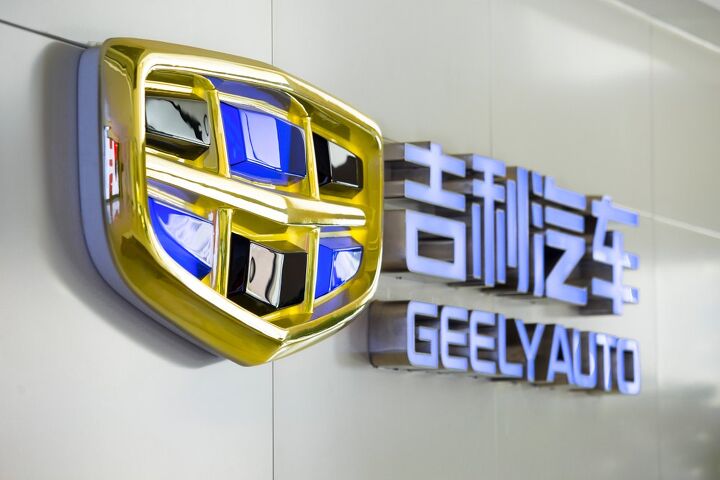


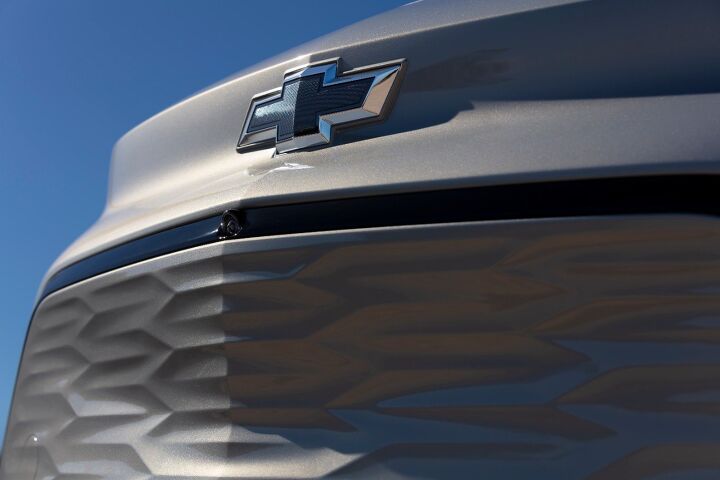
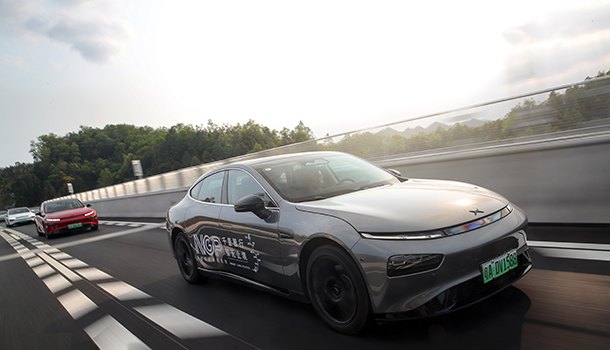

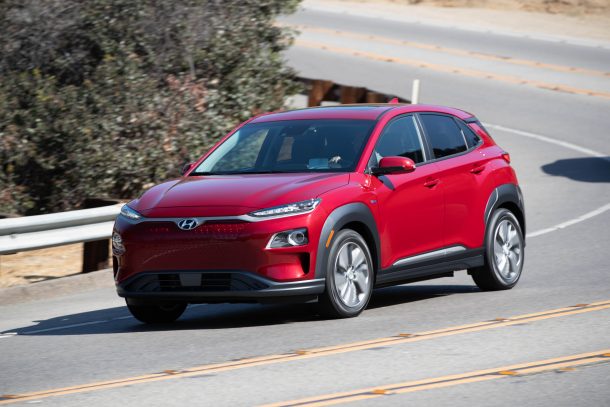


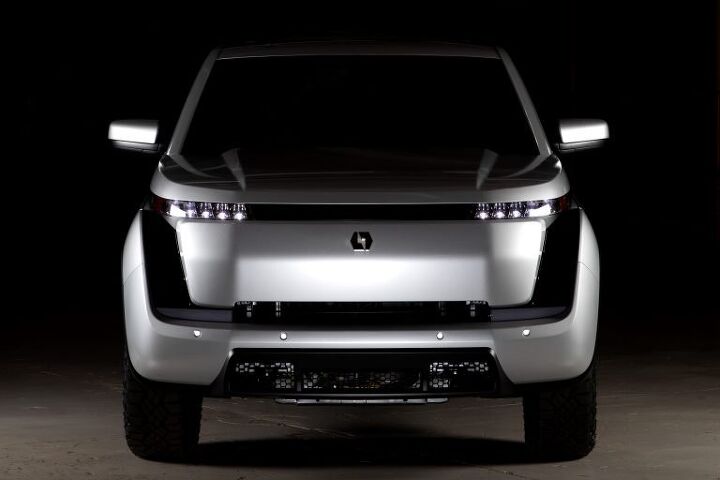



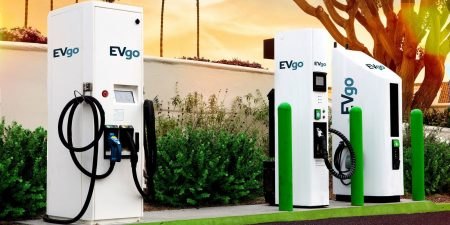


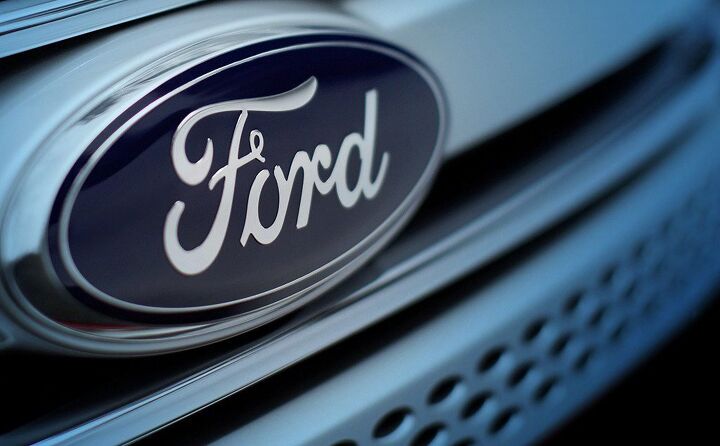
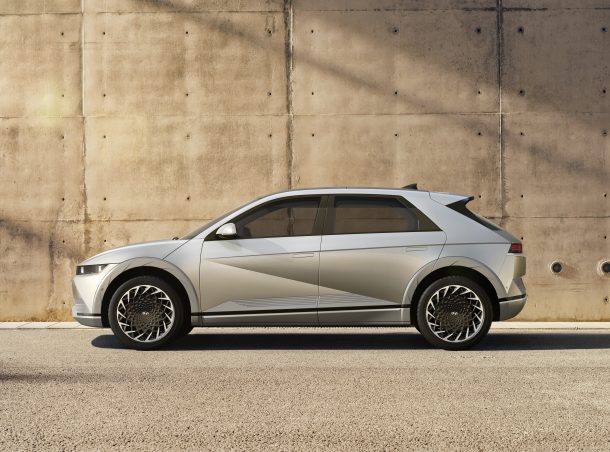

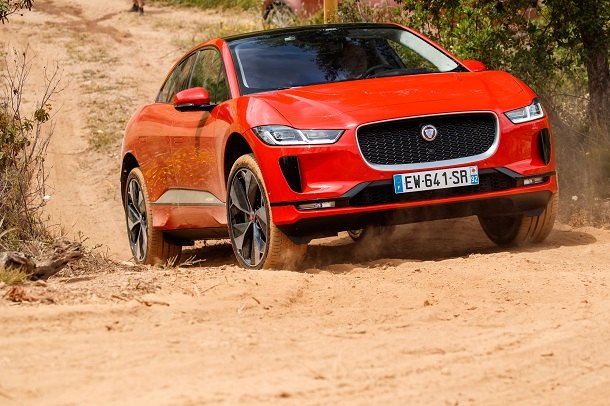
![Chevrolet Bolt EUV and EV – It's a Small World After All [Update]](https://cdn-fastly.thetruthaboutcars.com/media/2022/07/19/9160770/chevrolet-bolt-euv-and-ev-it-s-a-small-world-after-all-update.jpg?size=720x845&nocrop=1)



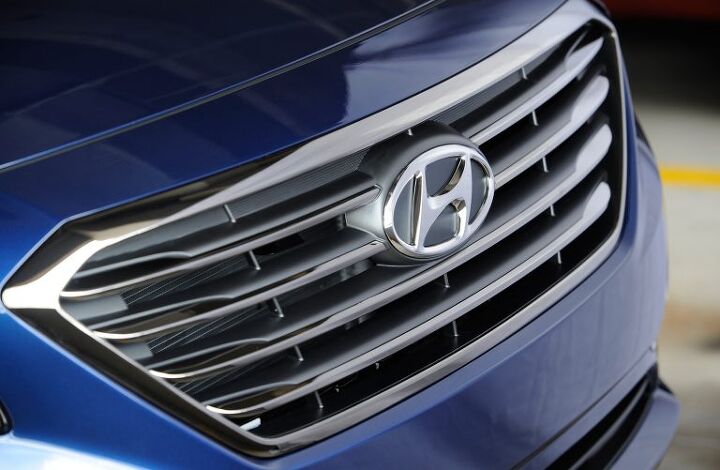


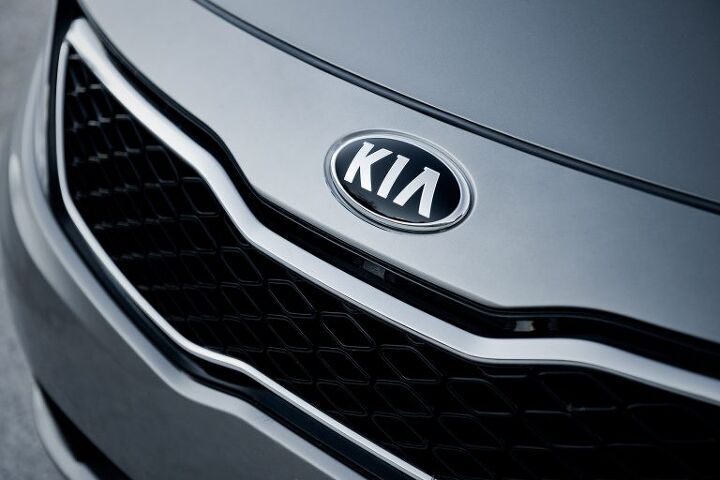

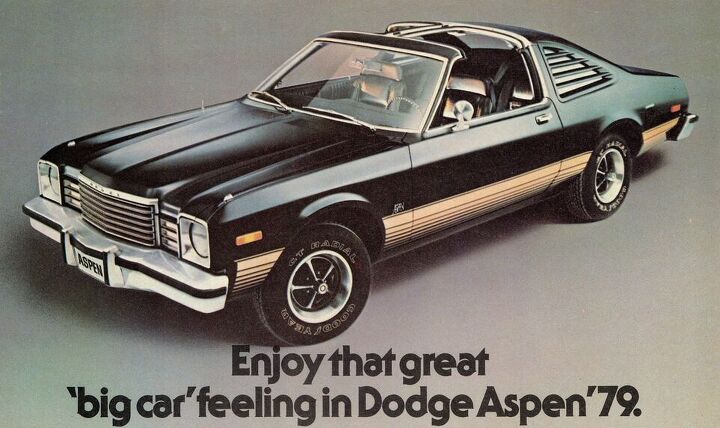
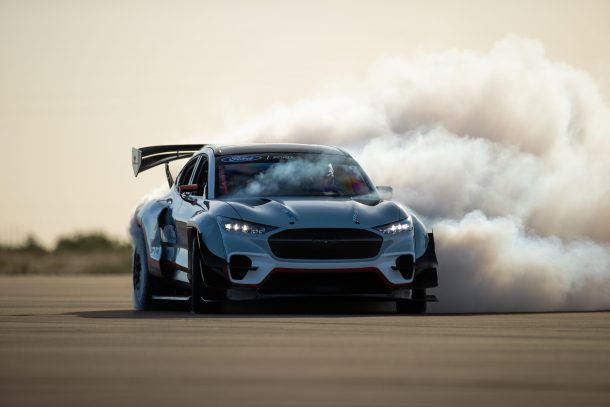




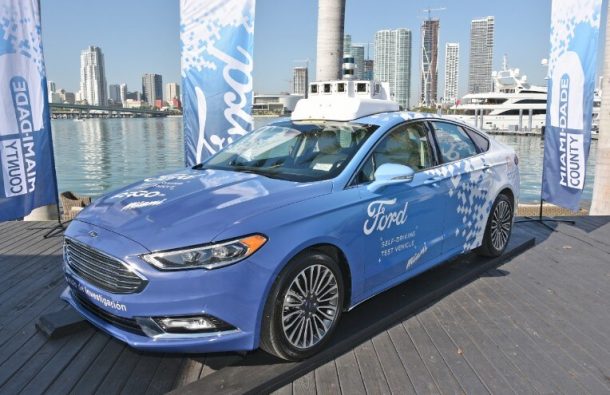

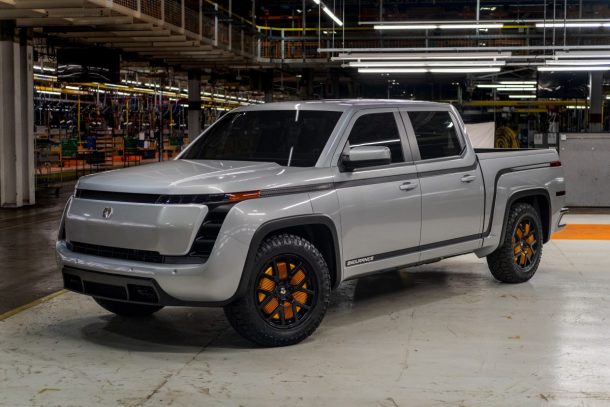


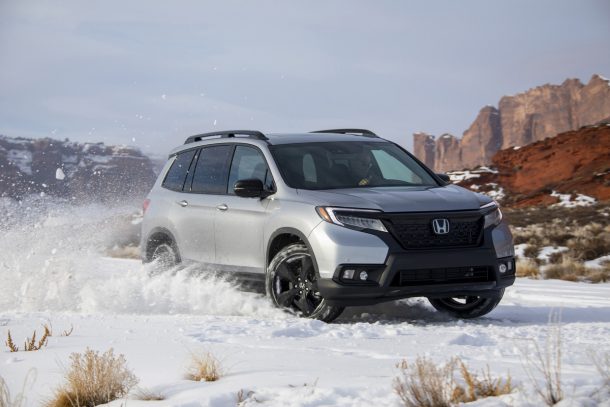
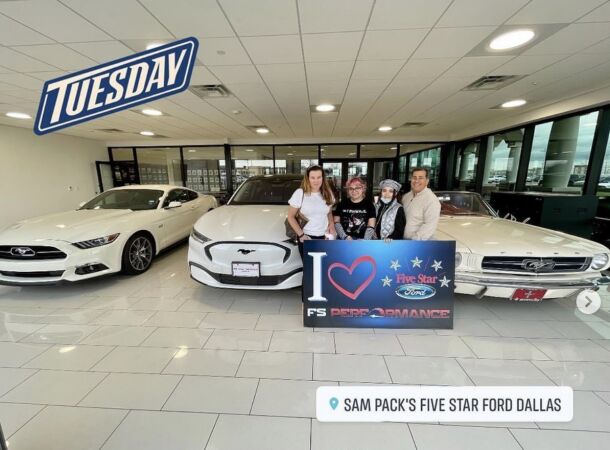



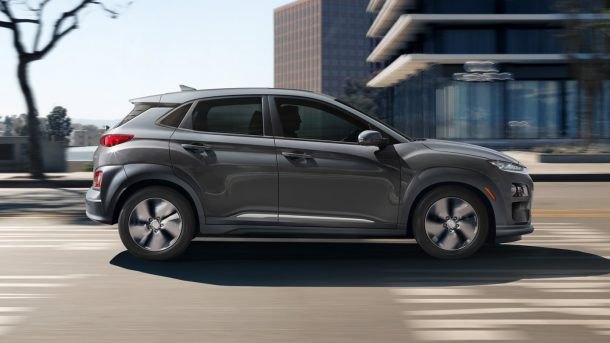
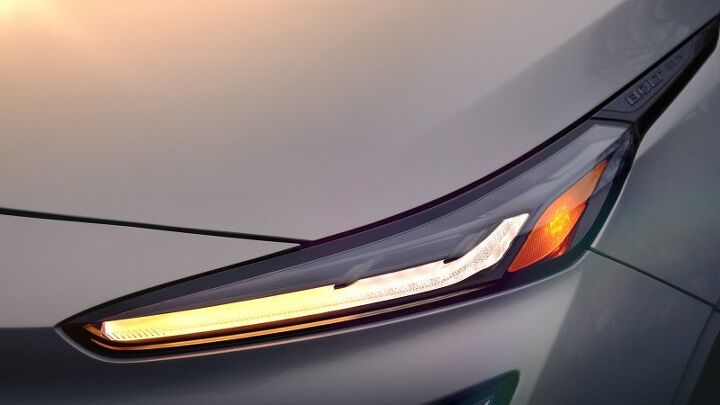

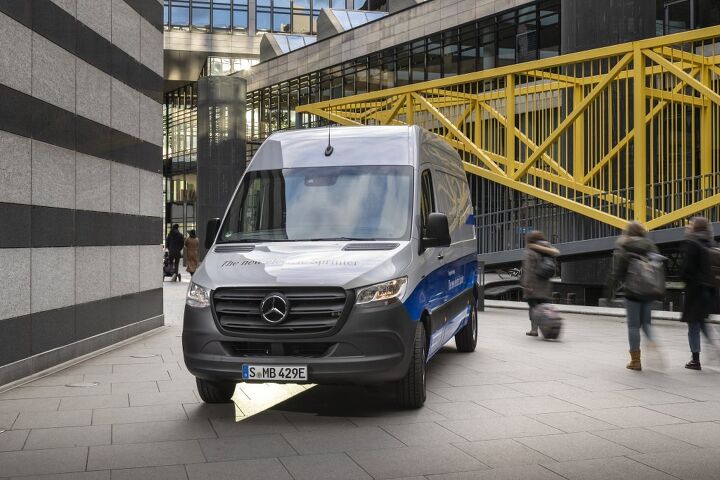



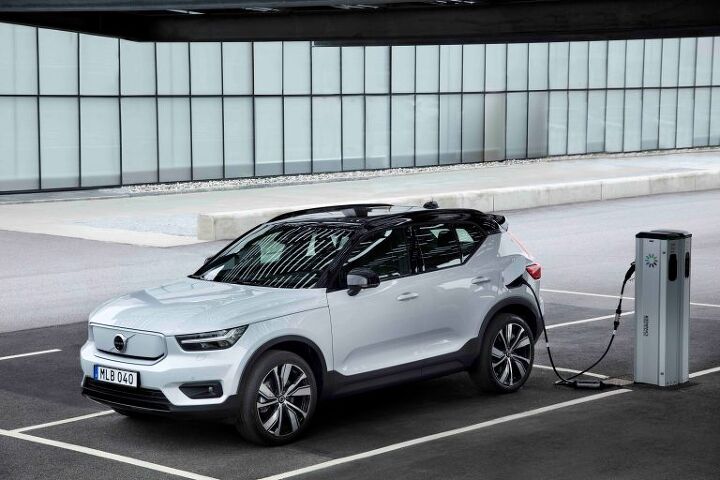

















Recent Comments